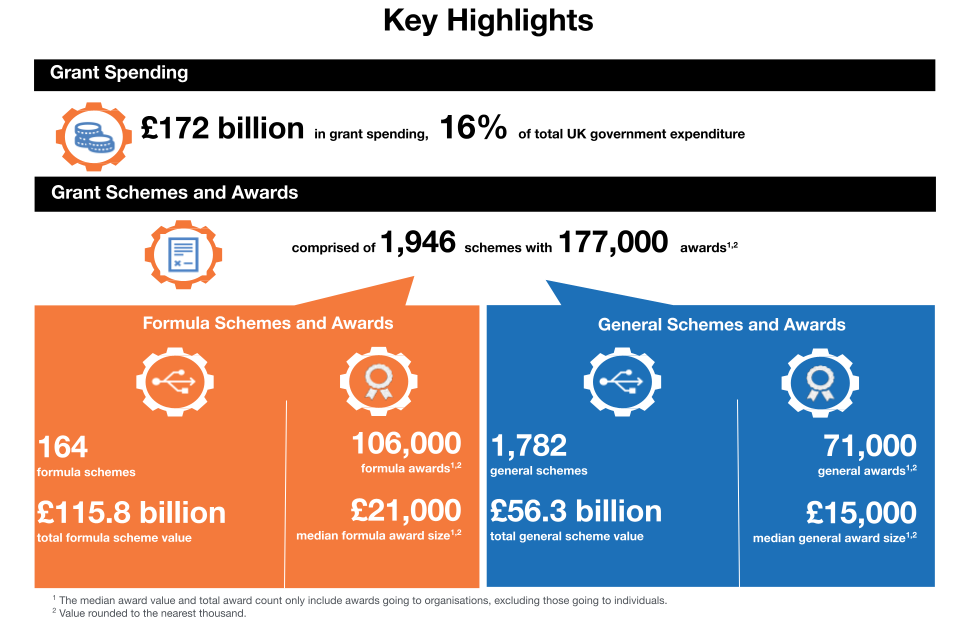5 Essential Tips for Securing UK Government Grants

Securing UK Government grants can be a vital step for businesses, researchers, and various organizations looking to fund their initiatives or expand their capabilities. These grants offer not just financial support but also validate your projects as being of significant public or economic value. Navigating the labyrinth of government grant opportunities, however, requires understanding, strategy, and meticulous planning. Here are five essential tips that can enhance your prospects of securing these highly sought-after grants.
Understand the Landscape

The UK government landscape for grants is vast and varied, encompassing sectors from innovation and technology to arts, culture, and sustainability. Before applying:
- Explore government websites like GOV.UK for updated lists of current grant schemes.
- Engage with local Enterprise Partnerships (LEPs) to gain insights into regional grants.
- Keep abreast of sector-specific programs, such as those through Innovate UK for technology or the Arts Council England for cultural projects.
Identify the Right Opportunity

With numerous grant schemes available, matching your project with the most suitable one is crucial. Here's how:
- Analyze project fit: Ensure your project aligns with the grant's objectives, outcomes, and eligibility criteria.
- Seek advice: Consult with business advisors or grant writing experts who can guide you through the most relevant opportunities.
- Read the fine print: Pay close attention to who can apply, what costs are covered, and the expected outcomes or deliverables required.
Plan Your Application

Your grant application is not just a request for funding; it's a strategic document outlining your project's value and potential. Here are key steps:
- Define your project clearly: Articulate the problem, your solution, and its unique selling points.
- Create a detailed project plan: Outline timelines, milestones, and deliverables to show your commitment and readiness.
- Financial planning: Develop a comprehensive budget including all relevant costs and potential additional funding sources.
- Impact and outcomes: Demonstrate how your project will benefit the public or the economy and how it aligns with the grant's aims.
Compiling a Winning Application

The application itself is your gateway to funding. Here's how to maximize your chances:
- Clarity and precision: Ensure your application is concise, well-structured, and free from ambiguity.
- Evidence and data: Use statistics, data, and case studies to bolster your proposal with facts.
- Collaborations: Highlight any partnerships or collaborations that add credibility or enhance your project's scope.
- Review and refine: Ask for professional or peer reviews to get feedback on your application before submission.
Follow-Up and Persistence

Submitting an application is just the beginning; following up can be equally important:
- Stay updated: Keep an eye on the grant scheme's website for updates on application status or additional requirements.
- Engage with decision-makers: If possible, meet with or attend events where you can network with grant providers to express your project's value.
- Be prepared for rejection: If your application isn't successful, learn from feedback and consider reapplying with necessary adjustments.
💡 Note: Persistence and adapting your approach based on feedback are key attributes for grant success. Don't get discouraged by rejections; they often provide valuable insights for future applications.
The journey of securing UK Government grants requires diligence, strategic planning, and an understanding of the grant ecosystem. By identifying the right opportunities, meticulously planning your application, and maintaining persistence through follow-up, your chances of securing funding can significantly increase. Each grant application teaches you something new, refining your approach for future opportunities. Remember, the competition for these grants is often fierce, but with these essential tips, you can elevate your project from just another application to a compelling, fundable proposition.
What types of grants does the UK Government offer?

+
The UK Government offers a wide variety of grants ranging from innovation and technology through Innovate UK, cultural funding from the Arts Council England, environmental grants for sustainability projects, research and development grants, and SME support via the British Business Bank, among others.
Can international companies apply for UK Government grants?

+
In some cases, yes. Certain grant schemes welcome international collaborations or projects that will benefit the UK economy, but specific criteria must be met. Always check the eligibility requirements on the grant’s official page or seek expert advice.
How long does it typically take to receive a decision on a grant application?

+
The timeline varies widely depending on the grant scheme, but it can range from a few weeks to several months. Some schemes provide feedback or a decision within a specified timeframe after the application deadline.